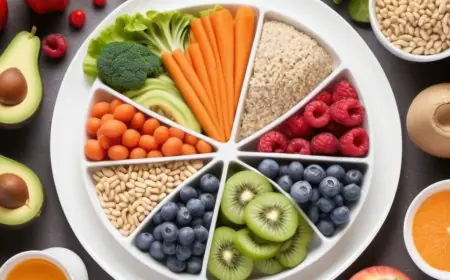Understanding the Risks of Unsafe Ingredients in Baby Food

The global infant formula market has experienced remarkable growth in recent years. It's driven by factors such as increasing adoption rates and rising demand for convenient and nutritionally balanced feeding options.
According to Zion Market Research, the market size surpassed USD 70.98 billion in 2022. It is expected to reach around USD 153.26 billion by 2030, with a compound annual growth rate (CAGR) of approximately 10.10% between 2023 and 2030. This robust growth trajectory underscores the significance of infant formula as a staple product for infant nutrition worldwide.
However, beneath the surface of this multi-billion dollar industry lies a growing concern. It’s the potential risks associated with certain ingredients used in these products.
This article discusses the risks associated with these five ingredients, empowering parents to make informed choices about feeding their infants.
1. Artificial Additives and Fillers
Many commercially prepared baby foods contain a surprising guest: artificial additives and fillers. These can come in the form of added sugars, sweeteners, and starches. While they may enhance taste or texture, their presence raises concerns for a baby's developing health.
One of the major risks associated with added sugars is the potential for establishing a preference for sweet flavors early on. This "sugar rush" can lead to a desire for sugary foods later in life, potentially contributing to childhood obesity and related health problems.
To state a recent example, according to The Guardian, Nestlé adds sugar and honey to products sold in developing countries. This practice directly contradicts international guidelines established to prevent childhood obesity and chronic diseases.
The findings, based on testing by Public Eye, revealed added sugars in Nido follow-up milk formula and Cerelac baby cereal."
The presence of these artificial additives highlights the importance of scrutiny when choosing baby food. Parents should prioritize products with minimal processing and a focus on natural ingredients.
2. Heavy Metals Contaminants
Heavy metals like lead, arsenic, or mercury can be present in trace amounts in baby food due to processing or agricultural contamination. These metals can impair a baby's developing nervous system and brain function, leading to long-term health consequences.
In response to these concerns, U.S. Senators Amy Klobuchar and Tammy Duckworth have introduced the Baby Food Safety Act of 2024. The bill grants the U.S. Food and Drug Administration (FDA) authority to enforce scientifically established limits on heavy metals in commercially produced infant and toddler food.
Additionally, it mandates requirements for food manufacturer sampling, testing, and recordkeeping for contaminants in imported and domestically processed food.
3. Cow's Milk Formula and the Risk of NEC
NEC is a devastating condition where tissue in the baby's gut becomes inflamed and dies. While the exact causes of NEC are still under investigation, some studies suggest a potential association with cow's milk protein-based formulas.
These formulas may be difficult for premature babies to digest, potentially triggering inflammation and contributing to NEC development.
This concern has sparked a surge in lawsuits against formula manufacturers. The NEC lawsuit update reveals a growing number of cases, with a current total of 496 lawsuits pending in multidistrict litigation (MDL).
According to TorHoerman Law, these lawsuits allege that formula companies failed to adequately warn parents about the risks associated with their products. An additional 43 new cases were added to the MDL in just the past month, highlighting the increasing awareness of this potential link.
For parents of premature babies, exploring alternative feeding options with their pediatrician is crucial. Breast milk, when possible, is always the ideal source of nutrition for infants. However, for situations where breastfeeding isn't an option, specialized formulas designed for premature babies may be a safer choice.
4. Unidentified Allergens
Despite the labeling, the presence of unidentified allergens in baby food remains a significant concern. This poses a heightened risk for infants with known allergies.
Even trace amounts of allergens not explicitly listed on packaging can trigger severe responses in vulnerable infants. The lack of comprehensive labeling regulations may exacerbate the problem, leaving caregivers uncertain about the safety of baby food products.
Therefore, parents and caregivers need to remain vigilant, carefully reading labels and being aware of potential allergens. Additionally, they should advocate for clearer labeling standards to ensure the safety of infants with food allergies.
5. Microbiological Contamination
Improper handling or storage of baby food can result in bacterial contamination, posing a serious health risk to infants with developing immune systems. Strict adherence to hygiene practices and proper storage techniques is paramount to ensure the safety of baby food.
However, despite precautions, incidents of microbiological contamination can occur. According to CBS News, this is evidenced by the recent recall of Reckitt/Mead Johnson Nutrition's infant formula in the U.S.
The recall, prompted by the discovery of Cronobacter sakazakii bacteria in cans imported into Israel from the U.S., highlights the potential dangers. With 675,030 cans sold in the U.S. affected by the recall, this incident underscores the importance of robust quality control measures.
Parents and caregivers must remain vigilant. They must carefully monitor product recalls to mitigate the risk of microbiological contamination in baby food.
Fequently Asked Questions
What is the main ingredient in baby food?
The main ingredient in baby formula is a blend of carbohydrates, proteins, and fats, providing essential nutrition for infant growth and development. Baby formulas also contain vitamins, minerals, and other nutrients to support overall health.
To minimize heavy metal exposure in baby food, offer a varied diet including oatmeal, barley, quinoa, and multigrain cereals, alongside balanced nutrition. Avoid solely feeding infant rice cereal. Rotating foods reduces overall exposure, even with organic or homemade baby food, promoting healthier development for infants.
Yes, baby food can be healthy when it provides essential nutrients necessary for infant growth and development. However, concerns arise regarding potential contaminants like heavy metals and additives. Careful selection, varied diet, and adherence to safety guidelines are crucial for ensuring the healthiness of baby food.
In conclusion, the world of baby food, while seemingly straightforward, presents a complex web of potential concerns. From artificial additives to heavy metal contamination, the ingredients themselves can pose a threat. Unidentified allergens and the risk of microbiological contamination add another layer of complexity. The potential link between cow's milk protein-based formula and NEC in premature babies further underscores the need for caution.
However, this isn't a reason to panic. By understanding the potential risks, we can empower ourselves to make informed choices. Prioritizing transparency in labeling, stricter regulations for manufacturers, and ongoing research are all crucial steps toward a safer future for our children.
Remember, breast milk, when possible, remains the gold standard for infant nutrition. For families that require formula, exploring options specifically designed for sensitive babies or those born prematurely might be a safer choice. Consulting with pediatricians and maintaining vigilant hygiene practices are also essential.
What's Your Reaction?












































